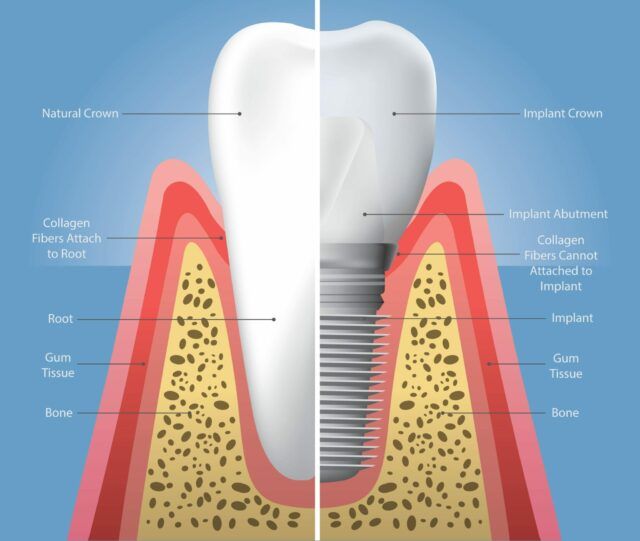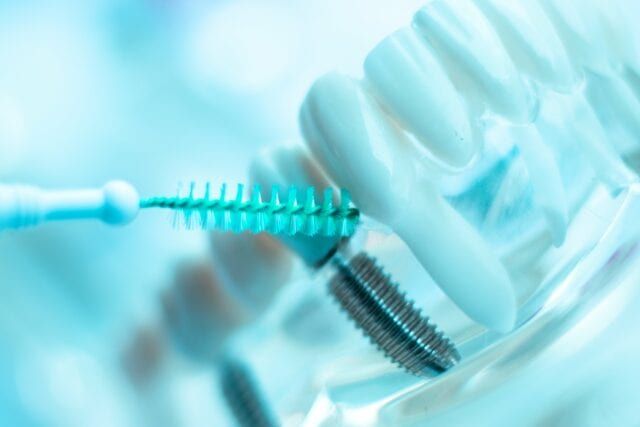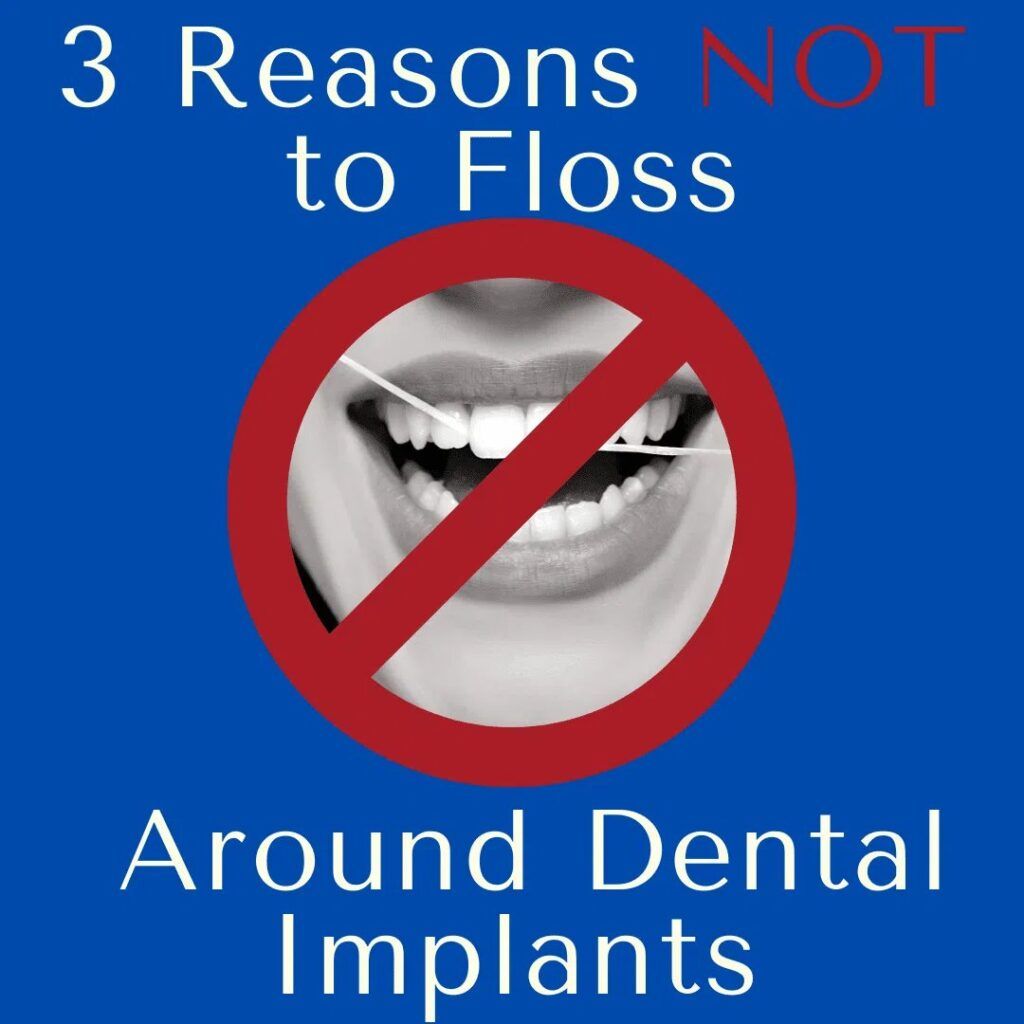Out of all the restorations available for replacing missing teeth, dental implants are considered to be the golden standard, best of the best option. The main reason for this is because dental implants are the next best thing to natural teeth themselves. The structure, appearance, and function of dental implants are all comparable to natural teeth. This ultimately means that once dental implants are placed and have healed, they are pretty much indistinguishable from natural teeth.
Because of the fact that dental implants are so close to natural teeth in their structure, appearance, and function, it is often recommended to care for them like you would your natural teeth. This generally means brushing them twice a day and flossing daily. However, some implant dentists are now saying that you should not floss around the implant. While you should follow the hygiene guidelines provided to you by your implant dentist, here are three potential reasons why you should not floss around implants:
Floss Shreds
There are various different types of floss and some types of floss are made to be stronger than others. However, the common factor among all types of floss is that they can shred, especially when used around a dental implant. When this happens, small pieces or particles of floss can become wedged between the gums and the implant. Since floss is considered a foreign substance in the body, this can cause the surrounding tissues to become infected. Shredded floss has been known to cause peri-implantitis, which can cause dental implants to fail.

The Wrong Technique Can Be Disastrous
Another reason why flossing may not be recommended for dental implants is because the efficiency of flossing is directly related to an individual’s flossing technique. At its best, a bad flossing technique can leave behind harmful plaque and bacteria. At its worst, a bad flossing technique can cause severe damage around the implant. This is because tissue around the implants creates a protective seal around the implant to prevent bacteria from entering. In natural teeth, this protective barrier is made up of the periodontal ligaments. Unfortunately, the protective seal that surrounds the implant is not as strong as periodontal ligaments, which means that it can be easily ruptured by an aggressive flossing technique. When this barrier gets broken, it creates an opening for bacteria to reach the bone. Eventually this can result in bone damage and bone loss, which can lead to implant failure.
Different Spacing
Another reason why floss may not be recommended for use around dental implants is because it is not always effective. This is because floss is designed to fit into the tight spaces between teeth, as well as between the teeth and gum tissue. Unlike natural teeth, dental implants are different sizes, shapes, and are placed at different depths, all factors which can affect the effectiveness of flossing. Since each individual’s dental implants can vary in regards to these factors, a customized hygiene plan is recommended to obtain the best results.
How to Clean Your Dental Implants
Chances are, being told not to floss goes against everything you’ve ever been told about maintaining your oral health. After all, flossing is an important part of removing plaque and bacteria from hard to reach areas in your mouth. Although dental implants cannot decay like natural teeth, your gums can still be affected by gum disease in cases where bacteria builds up along the gum line. Since flossing can be potentially damaging, however, here are some ways to clean around your implants without flossing:
Interdental Brushes

Interdental brushes are round or cone-shaped bristles attached to a skinny wire with a handle at the end. They come in a variety of sizes and lengths so that they can fit into the spaces between your teeth or dental restoration, which allows you to customize your oral hygiene routine. Much like dental floss, they are inserted between the teeth and then used to gently scrub back and forth, and up and down to remove plaque and food debris. Unlike floss, however, interdental brushes do not fray when used around dental implants. Some sources note that interdental brushes are more effective at removing plaque than floss.
Oral Irrigation
Oral irrigation, also known as water flossing, uses a handheld device that sprays pulsed water streams to remove plaque and food debris from between the teeth and along the gum line. The pulsed water stream ultimately acts much like dental floss, with the exception that it leaves behind no physical pieces. Water flossing is especially effective for cleaning dental implants because it allows you to clean around the implant without damaging the surrounding tissue. However, be sure to use an oral irrigation system that has been approved by the American Dental Association.
Overall, flossing is an important part of maintaining your oral health, however traditional flossing with dental floss can actually do more harm than good if you have dental implants. Broken floss particles and breaking the protective barrier around the implant can both result in implant complications, while using dental floss alone may simply not be effective enough. For these reasons, many implant dentists are recommending the use of interdental brushes or oral irrigation systems to keep dental implants clean and gum tissue healthy.

